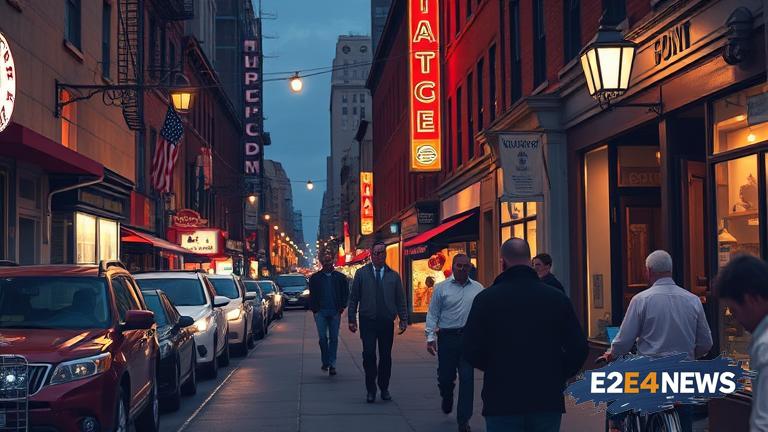The city of Philadelphia has recently introduced a curfew in an effort to curb rising crime rates, but the move has been met with fierce resistance from business owners. The curfew, which restricts individuals from being out on the streets between the hours of 10pm and 6am, has been deemed unfair and overly restrictive by many. Business owners in the city’s entertainment and nightlife districts are particularly affected, as they rely heavily on late-night patrons to stay afloat. Many have expressed concerns that the curfew will lead to a significant decline in revenue, potentially forcing some establishments to close their doors for good. The curfew has also been criticized for being overly broad, with some arguing that it unfairly targets law-abiding citizens who are simply trying to go about their daily lives. Others have pointed out that the curfew does little to address the root causes of crime in the city, instead opting for a blanket solution that fails to take into account the complexities of the issue. Despite these concerns, city officials have maintained that the curfew is necessary to ensure public safety. They point to statistics showing a rise in violent crime in recent months, and argue that the curfew is a necessary measure to prevent further incidents. However, business owners are not convinced, and many are calling for a repeal of the curfew or at the very least, a revision of the policy to make it more targeted and effective. Some have suggested that the city focus on increasing police presence in high-crime areas, rather than relying on a blanket curfew. Others have proposed alternative solutions, such as increased funding for community programs and social services, to address the underlying causes of crime. As the debate over the curfew continues, business owners are left to wonder what the future holds for their establishments. Will the curfew be repealed, or will it remain in place, potentially devastating the city’s nightlife scene? Only time will tell, but for now, business owners are left to navigate the uncertain landscape. The curfew has also raised questions about the role of government in regulating personal freedom, with some arguing that it is an overreach of authority. Others have pointed out that the curfew may disproportionately affect certain groups, such as young people and those from low-income backgrounds. As the city struggles to find a balance between public safety and personal freedom, business owners are caught in the middle, trying to make sense of the new regulations and find ways to adapt. The curfew has also had an impact on the city’s reputation, with some potential visitors and investors being deterred by the perception of a city in crisis. Despite these challenges, many business owners remain committed to their establishments and to the city, and are working to find ways to thrive in the face of adversity. The curfew has also sparked a wider debate about the state of the city, with some calling for greater investment in community development and social programs. Others have argued that the city needs to take a more nuanced approach to addressing crime, one that takes into account the complex interplay of factors that contribute to it. As the city moves forward, it is clear that the curfew will remain a contentious issue, with business owners, city officials, and residents all weighing in on the debate. The future of Philadelphia’s nightlife scene hangs in the balance, and it remains to be seen what the ultimate outcome will be. In the meantime, business owners are left to navigate the challenges posed by the curfew, and to find ways to keep their establishments afloat in the face of uncertainty. The city’s economy is also likely to feel the effects of the curfew, as businesses struggle to stay afloat and tourists are deterred from visiting. The curfew has also raised questions about the impact on local employment, as businesses are forced to reduce hours or lay off staff. As the situation continues to unfold, it is clear that the curfew will have far-reaching consequences for the city and its residents.





